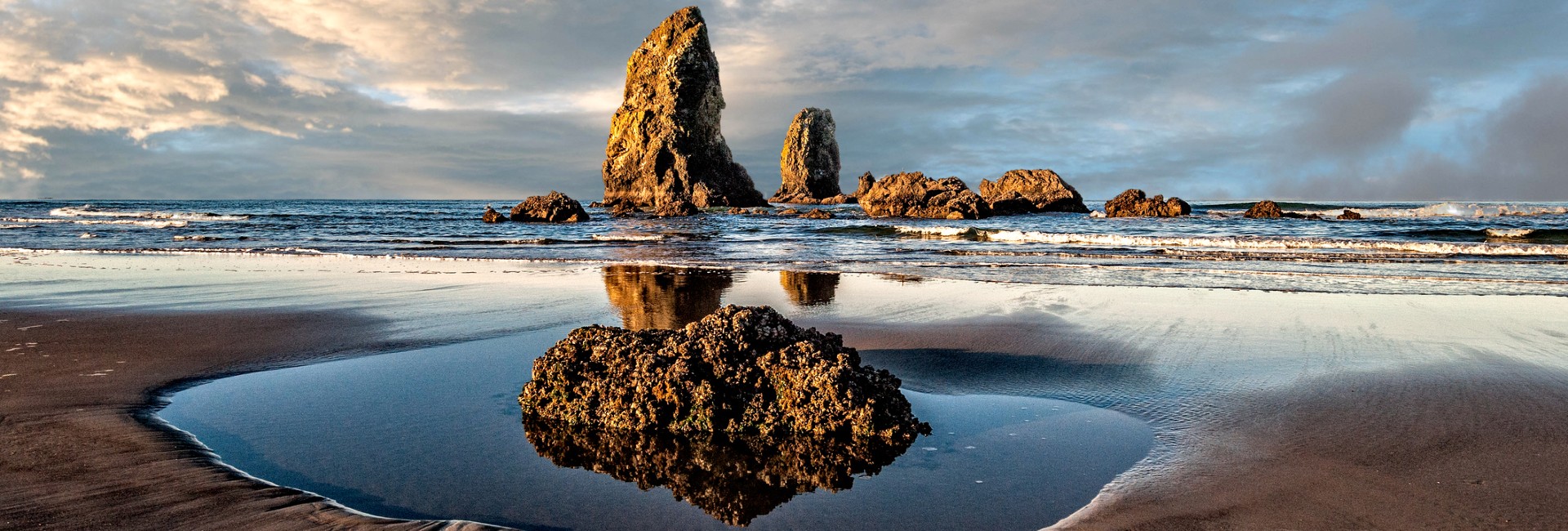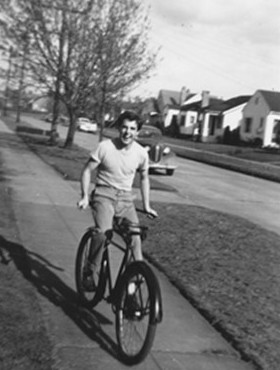Obituary of Fred Eugene Newton
Fred Eugene Newton was born on April 14th, 1931 and died after a “life well lived” at the age of 89. He was the third child of Fred William Newton and Ida Alice Lance. Fred was born in Powell Butte, Oregon, east of Redmond, where Fred’s parents homesteaded 160 acres on Minson Road working hard to make the desert produce crops. Fred loved his childhood on the farm in Powell Butte, and he always longed to return to east of the Cascades. He told many stories about his life on the farm, and he cherished those stories as the best times of his life.
In hindsight, his childhood farm life seems to have been his “waking dream”, as he always wanted to return to “the Farm” and in later life, took some practical steps to do so. However, he never did, despite taking some trips to eastern Washington in the 1990’s to look at property for sale, and even sketching what the farm should look like ideally. There was a wistfulness about his desire to return to the farm, mixed with his perplexity as to why his father would “give up the farm” to move to Portland during WWII. Though he lived in Portland the rest of his life, he never liked the rainy and cloudy weather of the Willamette valley. He loved the blue skies of the desert.
Fred met and married Odille Anne Burroughs in 1949, both very young and barely out of high school. They had four children – Phyllis Ann, Kathy Jean, Paul William, and Dianah Louise. The family lived mostly in Portland, Oregon, but also lived briefly in Longview, WA, in 1962 around the time of the Columbus Day Storm.
Fred was a travelling salesman in his early career and sold bras and girdles, beer and wine, tobacco and snuff. He later sold helicopters, men’s suits, and containers for shipping caskets for funeral homes. He ran a business with his early business partner, Marv Fenton, transporting deceased persons by car and plane to bring them to the chosen funeral home. He also owned a pipe and tobacco shop in the Lloyd Center Mall called “Pipeland” (named by his oldest daughter Phyllis), a beautiful shop filled with good conversation and the aroma of good tobacco, that was near the skating rink. He smoked a pipe as he sold his pipes and helped others cultivate the look of a smart and sophisticated pipe smoker during the days when pipe smoking was still fashionable. Wisely, he gave up smoking in his mid-30’s. Giving up bourbon would take a little longer.
He got into the bar and restaurant business in the late 1960’s and for the next thirty years he owned a number of “joints” in Portland -- The Table (Killingsworth Ave), The Galley (Front Ave), Gus’s Cafe (3rd and Couch), The Iron Horse (downtown Broadway). He also owned Harold’s Meat Market in the St. John’s neighborhood of Portland. He ran all of these with his long-time business partner, Al Brinker, or with his second wife, Ellen Wong, who he married in 1973. Sadly, Ellen died in 1978. This was devastating to Fred, and though he moved on with his life, he never really did get over her early death. For therapy after her death, Fred worked briefly as a radio talk show co-host on an ultraconservative talk show, subverting his co-host’s more idiotic ideas with more sensible political views. He knew the value of “Resistance” even then. Fred could talk to anyone (including the characters in his many bars) and viewed himself as an “everyman”. He understood Kipling’s advice about the wisdom of talking with crowds and keeping your virtue and that of walking with Kings and never losing the common touch. He met Betty Mounts at the radio station, and they lived together for many years until Fred’s dementia required that he move into a care facility in 2017.
Fred was also a bartender, a commercial real estate agent, a meat cutter, a bus driver, and a court clerk/bailiff for Judge Michael Marcus at the Multnomah County Courthouse. There was some irony in Fred working for Judge Marcus, because Judge Marcus had been a Berkeley left wing activist from the 1960’s and Fred was a traditional conservative Republican. Nevertheless, they were the most agreeable of co-workers and best of friends. After Fred retired from the courthouse, he worked for a season with the US Census Bureau in 2000.
Because of his expertise in business, Fred was often sought out for business advice, and over the years there was a long line of folks that listened to him discuss small business, high finance, and the merits of capitalism. He could talk for hours about insurance, leases, cash flow, and the burdens of governmental regulations. But he could also talk at length on the metaphysical existence of nothingness, the elaborate dog feeding ritual or routine of his dog (named “Newton”), and (in his words) the shape and size of a clamp needed to hold a doohickey to a thingamabob that attached to a gizmo behind the refrigerator. He was a political conservative but with great compassion for any underdog facing authority – especially when the underdog was being crushed by government. He was a good Republican but doubted the wisdom of the 2nd George Bush and would have loathed Donald Trump. He believed in the best in people and only commented on or responded to their best. If others reveled in their own flaws, Fred minded his own business.
Over the years, Fred owned many “classic” cars – or what would now be classics-- – a Mustang, a Chevy Impala, a Corvair, a Ford Galaxy, a Tempest, and even a couple of Borgworgs, but the most beautiful was his 1969 Lincoln Continental Mark III. Fred’s was silver with a black top. Its beauty was only exceeded by its tendency to break down. He had a love/hate relationship with that car. His favorite car of all was a used 1971 GMC pickup with a rusting hood. He loved that truck.
Fred also loved talking about ideas, and he raised his children to be good philosophical thinkers. As children and even into adulthood, all of them had discussed with him political ideas, social mores, the “meaning of life” and religious and irreligious concepts. One of the lengthier discussions that he had with many of his children and grandchildren was the question whether “nothingness” existed as “something.” This was usually a conversation that lasted many hours, always ending without resolution. One of his favorite expressions, as an introduction to his own opinion after listening respectfully to others, was to say: “In the final analysis . . . “ He often said when someone claimed that Fred didn’t understand their position: “I understand it perfectly, I just don’t agree with it.”
In his younger days, he painted with oils for a while. His landscape of a line of storm-damaged telephone poles was based on a real scene he saw in Eastern Oregon in childhood. Another subject of a painting he did was a line of simple boxes stretching into infinity.
His favorite animal was the trilobite, a bug that covered the earth millions of years ago but had long become extinct. It was Fred’s belief that the trilobite was the most successful of all animals because it had lasted unchanged for millions of years and that humans, who have populated and dominated the Earth for a mere few hundred thousand, were not even in contention for the title of most successful animal. He could argue that question for hours.
He once wrote a letter to a friend explaining the doom posed by the entropy of the universe. His friend didn’t understand it.
Fred’s instinct for farming made him grow a vegetable patch in the front yard of his house, where he lived on one of the more prettified and conventional streets in the Grant HS neighborhood. The Grant Neighborhood Beautification Society i.e., his neighbors, often complained about the farm operation in the front yard, but Fred was unperturbed. Once, when a neighbor asked him what he thought his neighbors thought about his vegetable garden, he looked her square in the eye and said: “Lady, do I look like a guy who cares about what his neighbors think?”
And even though most of his life he “hated cats” he later acquired 5 or 6 of them, refused to have them neutered or spayed, and spent much of his time “herding” those cats to and from the back door. He loved animals and could spend hours watching the bees pollinate a hedge or a line of ants seeking a way into his house. He avoided killing insects and preferred to capture them and take them outside, or he left them alone.
Fred died quietly at the age of 89 after a short stay in the hospital. He was COVID-19 positive.
Fred leaves behind his children Phyllis Ann and her husband Luis, Kathy Jean and her husband Sam, Paul William and his wife Arianne, and Dianah Louise and her husband Nick, and their children and grandchildren – Adele Newton, Matthew Rice, Emma Newton, Max Bernard, and Brandon Newton. He also leaves behind his sister Karleen Daley of Vancouver, WA, and many nieces and nephews.
To send flowers to the family or plant a tree in memory of Fred Newton, please visit Tribute Store









